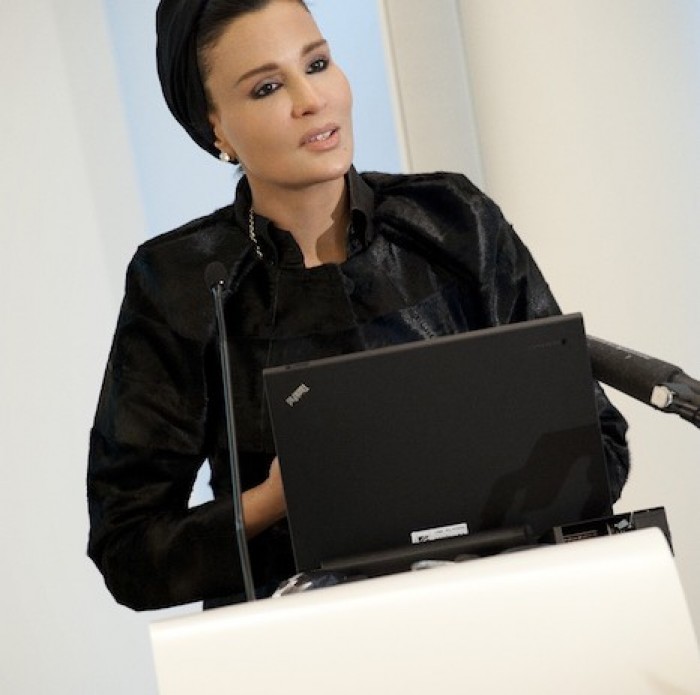Success Stories
Dr. Joseph Jacobs
Founder of Jacobs Engineering - the third largest U.S. engineering and construction firm.
By Ghana Harb Conord
April 28, 2008
A success story built on Lebanese values and tradition
Like many Americans who tell stories of migration, courage, and adventure, Dr. Joseph Jacobs has a similar story. His is one of family, culture, ethics, and success as he tells it in his interview with Today's Outlook, and in his book “The Anatomy of an Entrepreneur”. It begins when his parents migrated from Lebanon to the United States at a very young age. In 1886, at the age of 16, his father came to America to escape the hardships of the Ottoman Empire which had ruled Lebanon. He spoke very little English and knew very little about the country. When he arrived at Ellis Island and they asked him his name he replied “Youssef ibn Yakoob”, Joseph son of Jacob, and right there began a new life, in a new country, and even with a new name. With faith and hard work he started working as a peddler, going from door to door and from city to city selling home products. It was then that he met his future wife, Affifée Forzley, who also migrated with her family from the Bekaa valley when she was nine. After their marriage Joseph and Affifée continued traveling to make a living, saving money so that someday he could start “his own business”. They finally settled down in New York City with their six children and started their own business selling produce in a market, and in 1916 their seventh child was born - Joseph.
Dr. Joseph Jacobs grew up in a modest home with his family, and still recalls his mother’s emphasis upon pride and reputation in the community. “At home, my role models were my serious and sometimes forbidding mother and two extremely competent and hard-working sisters,” he said. Like many others in America, Dr. Jacobs lived close to, and was surrounded by, people of the same culture. The thing that influenced him the most and made a lasting impression, was the ethics and the culture of his Lebanese parents, especially the need to follow in his father’s footsteps and start his own business. After graduating from college and later getting his doctorate degree in engineering, Dr. Jacobs started working for several different engineering firms.
In 1947, out of a small office in California, Dr. Jacobs founded Jacobs Engineering which started as a consulting firm. In the early 1960’s the Company began looking for big projects nationwide and overseas. At the time, it only employed around 100 people. In 1974, Jacobs Engineering began building a plant for the Arab Potash Company in Jordan designed to recover potash from the Dead Sea. It was by far the largest project and the first of its kind that the Company built “of which we’re very proud” noted Dr. Jacobs.
In the late 80’s the company was growing at an average of 49% from the previous four to five years. Today, Jacobs Engineering Group is involved in 3,000 to 4,000 engineering and construction projects worldwide. “We are well integrated,” remarked Dr. Jacobs. “We build semi-conductor plants, and we are also involved in the petroleum and paper industries, among others.” We have more than 15,000 employees worldwide, and have about 25 offices in the United States. We also have projects in Ireland, France, England and Italy.” In 1995, sales reached about $2 billion making Jacobs Engineering the third largest engineering and construction firm in the United States. And in the coming year, on its 50th anniversary, the company is expected to enjoy a healthy and steady growth.
In 1960 Dr. Jacobs made his first visit to Lebanon. “It was wonderful,” he recalled. “I visited my sister-in-law who is married to a Lebanese and they live in Ras Beirut. She is from the Jabbara family from Marj Elayoun,” he continued. “Before my visit I always heard that Lebanon is a fairyland. My father always told me about the delicious fruits in Lebanon and indeed, they were delicious. I saw a lot of the country, I went to the mountains and it was really beautiful. It is hard to give you a mixture of the two feelings I had because I was happy, yet I was sad to see that the country of my forbears was divided.” He continued, “Sometimes the Lebanese are their own enemies. They always say it is someone else’s fault and they keep making excuses. They should start working together and solve their problems themselves. They have shown courage around the world, it is sad to see them victims. I deeply admire the Lebanese and I am very proud of my heritage.”
That sentiment is very apparent in his efforts and activities. Dr. Jacobs is one of the founders of the American Task Force for Lebanon, whose objective is to gather Lebanese-Americans, try to improve the image of Lebanon, inform the public and U.S. Congress about Lebanon and help improve its conditions.
Another project that Dr. Jacobs is working on is the Middle East Technology Assistance (META) – a foundation headed by his daughter, Dr. Linda Jacobs – its objective is to give the Lebanese middle class education in technology and computers. Regarding META, Dr. Jacobs said “We feel that Lebanon has no middle class. There is a lot of rich people, but also a lot poor people. There is a missing middle class who do not go to college. We would like to give scholarships to Lebanese students and train them in computers and modern technology, especially in this information age.”
META is still at its formation stage, “We are trying to assess where and how it fits in,” he adds. This year Dr. Jacobs celebrated his 80th birthday. Yet, every day he still shows up at the office and continues to work. When asked what he does at the office he replied, “I get requests from various parts of the country to participate in activities. I work with my family’s charitable foundation and I respond to requests for speeches”. Dr. Jacobs has received several awards honoring his achievements in the engineering and construction business community. He serves on the Board of the Polytechnic University, and is a member of the Board of Trustees of Harvey Mudd College in Claremont, California. “My most important role within the Company now is to be symbolic, and I am, as far as I know, the only founder of a major engineering and construction company who is still alive and kicking and reasonably vital...I just happened to hang around for a while,” he said jokingly.
































